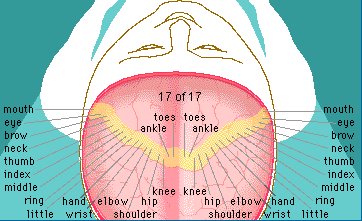The Dialetic of Wakening
John Welwood
Professional Biography for John Welwood
John Welwood, Ph.D., is a clinical psychologist, psychotherapist, teacher, and author. He originally studied philosophy at Bowdoin College, and spent two years at the Sorbonne in Paris studying existentialist thought. As a graduate student he trained in existential psychology and worked closely with Eugene Gendlin at the University of Chicago, where he received his Ph.D. in clinical psychology in 1974. He has also been a practicing student of Buddhism and Eastern contemplative psychologies for thirty-five years. It is these two streams of influence that have shaped, in equal part, his innovative psycho spiritual approach. In the 1980s John Welwood emerged as a major figure in the leading-edge fields of transpersonal psychology and East/West psychology. The former Director of the East/West psychology program at the California Institute of Integral Studies in San Francisco, he is currently Associate Editor of the Journal of Transpersonal Psychology. He trains psychotherapists in "psychotherapy in a spiritual framework" and "the healing power of unconditional presence" and leads workshops on psychospiritual work and conscious relationship throughout the world.
I have come to a point in my healing journey where I see this study to be the truth for myself and I see myself changing from the abused victim to a thriver survivor.
John talks of a felt shift that is when movement in the body revealing a new sense of meaning and direction and the old fixation goes away.
He also speaks of satori which is a zen Buddhist meaning sudden awakening at the heart of zen.
He compared these two to see if they were the same thing or if they were different forms of ways to heal.
In his research as a psychotherapist he uncovered that the therapeutic process involved stepping back from one's felt experience in order to inquire into it in a dialogical manner. What he found to be different about the zen way of healing was that instead of stepping back and then looking at the trauma and having a felt shift like in psychotherapy that zen approached a more radical opening to whatever experience was at hand, instead of stepping back from it you directly recognize and meet ones experience as it is without concern for what it means where it comes from or where it leads. Zen believe this way you let go of the fixation on whatever arises in the mind and this eventually develops the capacity to relax and abide wakefully in the midst of whatever experience is arising. When there is no identification either with the observer or what is observed awareness remains undisturbed by any divisions and a new freedom, freshness, awareness, clarity and compassion become available.
I have seen this happening to me. I see from afar now instead of the experience up close and lets me evaluate what the reality of the situation is, taking apart layer by layer to reproduce a new understanding of the trauma I suffered and instead of internalizing it as in the past I have it now away from me reading it like a book so the logical part of my mind can develop whereas in survival mode it never developed grew due to only being able to focus on survival mode.
Part II Meditative Tradition of Tibetan Buddhism will continue in the next post.
You can go here and learn more of John Welwood.
http://www.johnwelwood.com/biography.htm
Saturday, August 25, 2007
Subscribe to:
Post Comments (Atom)

http://www.windyweb.com/stop.htm














No comments:
Post a Comment